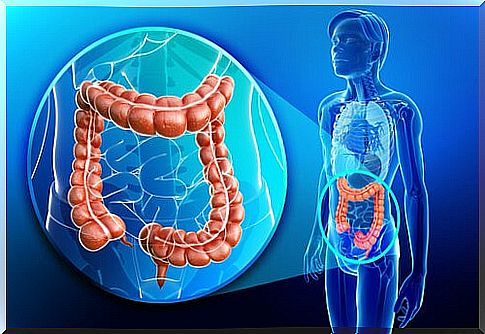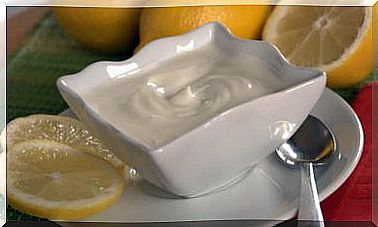Ulcerative Colitis: Causes, Symptoms And Treatment
Ulcerative colitis (or ulcerative colitis) is an increasingly frequently diagnosed condition. It is an inflammatory process that affects the digestive tract and that usually evolves chronically through more or less recurrent outbreaks.
It is common for it to be located especially in the colon area and, in turn, to radiate to the entire digestive system. It causes pain, discomfort, and a very limited quality of life while we experience such episodes. Hence, we must always have medical supervision to control symptoms at all times.
In this article we want to talk to you in detail about ulcerative colitis so that you know how to recognize the causes and put into practice simple home remedies that can complement those offered by doctors.
What Causes Ulcerative Colitis?
To this day it is unknown exactly what causes ulcerative colitis. It falls within what is clinically called ailments associated with intestinal inflammation, where Crohn’s disease would be.

Although there is still no proven data that can show us why patients suffer from it, there are some factors where there is consensus among doctors :
- Ulcerative colitis is related to a type of autoimmune disease. That is, the body itself sees certain parts of the intestine as an enemy, in this case the colon area, and attacks it, destroying tissues and causing ulcers.
- Stress is a common factor among a high percentage of the affected population.
- It usually appears between the ages of 20 and 30, and becomes persistent between the ages of 50 and 70.
- Ulcerative colitis is usually triggered after suffering a first intestinal inflammation.
- It is suspected that it could be caused by some type of bacteria or virus that is located in the colon. Despite there being no cure, it is known that the only way to end the disease in almost 80% of cases is by removing the colon.
What are the symptoms of ulcerative colitis?
Symptoms can sometimes differ from person to person. At first there are those who suffer a lot of diarrhea, with possible traces of blood, while other patients complain of severe abdominal pain. However, there is a general symptomatology that could show the following clinical picture:
- Strong abdominal pain: they are a kind of intermittent cramps that come and go
- You can hear a kind of sound in the intestine area, such as airs or internal flatulence
- Presence of blood or pus in the stool
- Episodes of diarrhea
- Fever
- Progressive weight loss
- If ulcerative colitis is more severe, it can lead to joint pain
- Mouth ulcers
- Sickness

Natural treatment of ulcerative colitis
We are all clear that the priority is to always put ourselves in the hands of the doctors so that they offer us the most appropriate treatment according to our particular case. As we have indicated at the beginning, not all people are the same, and the treatment will be determined by our age and associated diseases.
Now, to complement this medical treatment, at home and on our part, we can follow some simple guidelines to achieve a better quality of life. We invite you to discover them.

We must cover our vitamin needs
Ulcerative colitis is unique in the fact that it lowers our defenses and, above all, makes it difficult to properly absorb the food we eat. It is something very dangerous and that we must counteract. Take note of the supplements you need to cover:
- Spirulina: Spirulina is rich in vitamins, fiber and proteins, it helps us strengthen our defenses and can be very suitable to offer us a better quality of life.
- Brewer’s yeast: Another supplement that provides us with multiple nutrients on a daily basis and that will allow us to strengthen the immune system. You can buy brewer’s yeast in health food stores or pharmacies.
- Folic acid or vitamin B9: When we suffer from intestinal malabsorption due to colitis, it is common for us to suffer from a folic acid deficiency. It is worth taking a supplement with this compound.
Natural remedies to relieve pain caused by ulcerative colitis
- Aloe vera juice : Aloe vera has the property to reduce inflammation, heal and relieve pain. Ideal if every morning you prepare an aloe vera juice. It is enough to put a teaspoon of aloe (5 g) in a glass of water (200 ml) and infuse.
- Carrot smoothie : Rich in vitamins and very suitable for relieving intestinal pain
- A tablespoon of flaxseed oil : We can start the day with it. Flaxseed oil is rich in Omega 3, a type of fatty acid that will come in handy to reduce inflammation
- Evening primrose oil: Another very effective oil in relieving the symptoms of ulcerative colitis. You can find it in natural stores or pharmacies. Remember to also take it on an empty stomach to reduce inflammation and thus reduce the discomfort associated with this ailment.
“Researchers around the world are dedicated to research to help ulcerative colitis patients. That’s good news when it comes to developing new therapies for this disease. With several experimental treatments for inflammatory bowel disease in medical trials, experts predict that a wave of new therapies for ulcerative colitis is on the way. ” Affirms the Crohn’s & Colitis Foundation of America.









